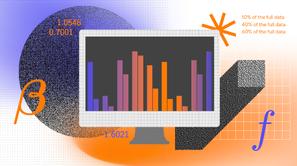Мой профиль

язык курса
длительность курса
понадобится для освоения
для зачета в своем вузе
за обучение
The course covers modern machine learning methods as they apply in economic research. It forms students' understanding of the commonalities and differences between machine learning methodologies and traditional econometrics, and it helps master theoretical and practical principles and techniques for using machine learning in business analytics using software which is the current industry standard.
Machine learning methods are increasingly used in economics, finance and econometrics. Despite the difference in approaches between traditional econometrics and machine learning, these areas often solve methodologically similar tasks.
The purpose of the course is:
to teach modern machine learning methods, their role in economic research,
to form students' understanding of the commonalities and differences between machine learning methodologies and traditional econometrics,
to help master the theoretical and practical principles and techniques required for using machine learning in business analytics with modern software packages.
The course combines classical econometrics with statistical machine learning from the point of view of a business analyst, facing practical problems related to potentially large amounts of data.
The course is taught completely online.
Level of English: B1.
Module 1. Machine learning: Part 1
Module 2. Machine learning: Part 2
Module 3. Big Data Processing Methods in Econometrics
Module 4. Project
After the course, students will:
- be able to carry out econometric analysis in various areas of the economy, including the construction of forecasts of socio-economic development indicators at the enterprise, region, country level using both traditional econometrics methods and machine learning models;
- be able to analyze and use various sources of information to conduct socio-economic calculations, classifications and predictions;
- be able to make a forecast of the main socio-economic indicators of the enterprise, industry, region and the economy as a whole;
- be able to choose and apply suitable machine learning methods for solving economic problems using the Python programming language, as well as libraries such as: Scikit-learn, Pandas, Numpy, Scipy, Statsmodels, LightGBM;
- possess modern skills in processing and analytics of big data. Students will get acquainted with the following big data processing technologies: Apache Hadoop, the MapReduce computing paradigm, as well as Apache Spark.
The course is aimed at the formation of general learning competencies for Bachelor’s and Specialists’ programs, as well as other competencies included in the education program.
ОПК-1 Способен применять естественнонаучные и общеинженерные знания, методы математического анализа и моделирования, теоретического и экспериментального исследования в профессиональной деятельности
ОПК-2 Способен понимать принципы работы современных информационных технологий и программных средств, в том числе отечественного производства, и использовать их при решении задач профессиональной деятельности
ОПК-5 Способен инсталлировать программное и аппаратное обеспечение для информационных и автоматизированных систем
ОПК-6 Способен анализировать и разрабатывать организационно-технические и экономические процессы с применением методов системного анализа и математического моделирования
ОПК-7 Способен разрабатывать алгоритмы и программы, пригодные для практического применения
ПКП-1-ИИР-ОПК-1 Способен анализировать, разрабатывать, внедрять и выполнять организационно-технические и экономические процессы с применением технологий и систем искусственного интеллекта
ПКП-3-ИИР-ПК-1 Способен классифицировать и идентифицировать задачи искусственного интеллекта, выбирать адекватные методы и инструментальные средства решения задач искусственного интеллекта
ПКП-4-ИИР-ПК-2 Способен разрабатывать и тестировать программные компоненты решения задач в системах искусственного интеллекта
ПКП-5-ИИР-ПК-4 Способен разрабатывать и применять методы машинного обучения для решения задач
ПКП-6-ИИР-ПК-5 Способен использовать инструментальные средства для решения задач машинного обучения
ПКП-7-ИИР-ПК-6 Способен создавать и поддерживать системы искусственного интеллекта на основе нейросетевых моделей и методов
УК-1 Способен осуществлять поиск, критический анализ и синтез информации, применять системный подход для решения поставленных задач
УКБ-3 Способен понимать сущность и значение информации в развитии общества, использовать основные методы получения и работы с информацией с учетом современных технологий цифровой экономики, искусственного интеллекта и науки о данных, а также информационной безопасности
язык курса
длительность курса
понадобится для освоения
для зачета в своем вузе
за обучение

Кандидат физико-математических наук
Должность: Доцент кафедры информационных систем в экономике

Должность: Professor of Business Analytics at the University of Sydney Business School, Academic Advisor of Center for econometrics and business analytics St Petersburg University

Должность: Machine Learning Engineering @ Revolut
По данному курсу возможно получение сертификата.
Стоимость прохождения процедур оценки результатов обучения с идентификацией личности - 3600 Р.